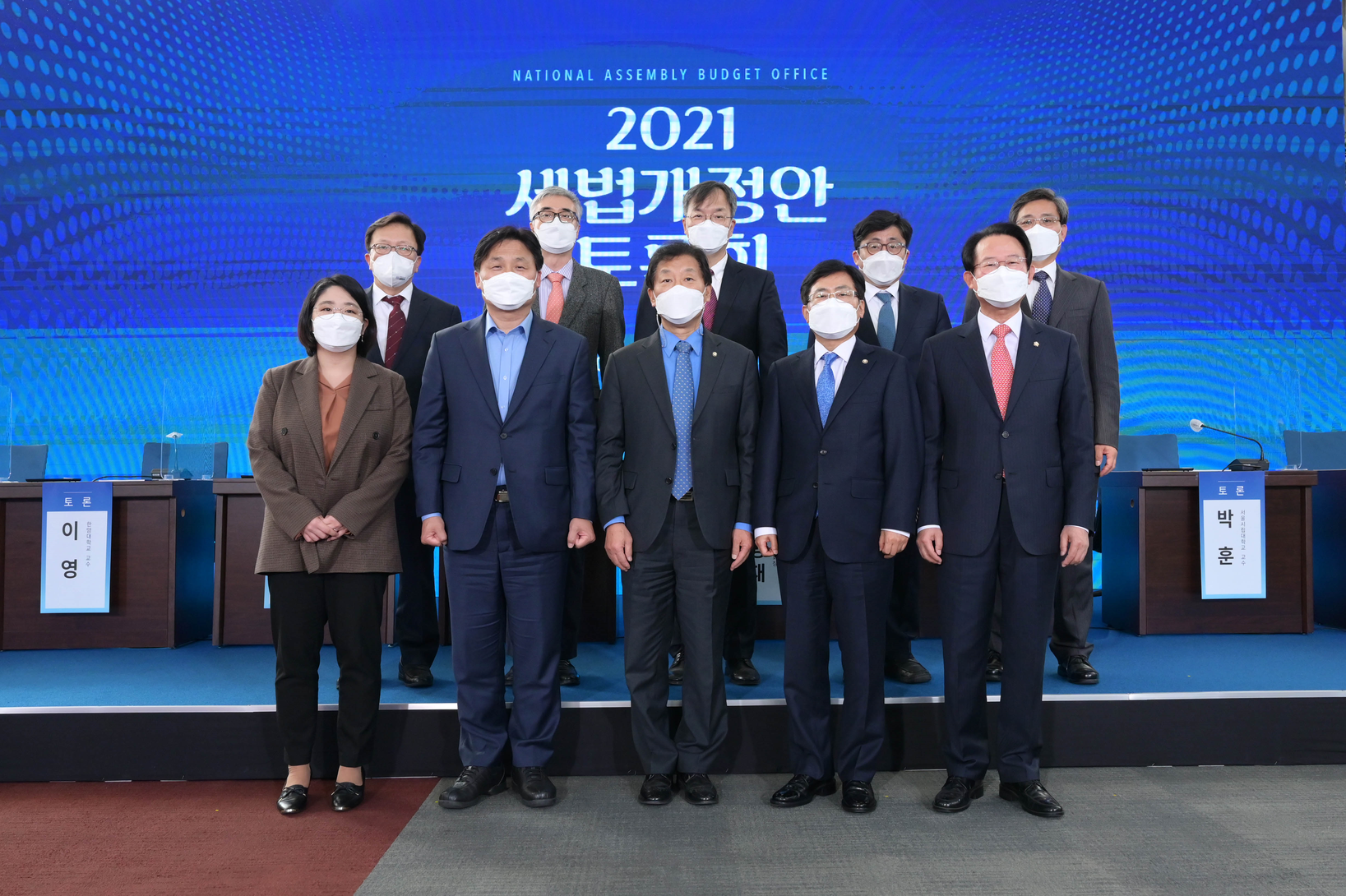|
National Assembly Budget Office held the Grand Debate on the 2021 Tax Reform Proposals online on Monday, November 1st, 2 pm on the third floor of the NABO building to seek proper principles and direction of the National Assembly's examinations on the government and parliamentarians' tax reform proposals.
Chief Lim Ik-sang delivered the opening remarks and followed congratulatory remarks by Rep. Yoon Hu-duk, chairman of the Strategy and Finance Committee.
President Sung Myung-jae of the Korean Association of Public Finance hosted the debate. Kim Tae-ju, Deputy Minister of the Tax and Customs for the Ministry of Economy and Finance, gave the first presentation elaborating on the main characteristics and details of the 2021 tax reform proposals, including "supporting economic transition as a pace-setter and economic recovery," "reinforcing inclusivity and the foundation for co-existence and fairness," and "creating a tax-payer friendly environment for stable tax revenue."
Park Myung-ho, Assistant Chief for Estimates and Tax Analysis Department of NABO, delivered the keynote speech on the second topic. He evaluated that this year's tax law reform proposals focused on expanding tax support for corporate investment. He also emphasized that tax law management strategies, such as enhancing revenue mobilization, are required to prepare for the post-COVID-19 era and respond to population aging, low fertility rate, and other socioeconomic structural changes.
In the debate that followed, Executive Secretary of National Assembly's Strategy and Finance Committee, Kim Young-jin (Democratic Party of Korea), positively evaluated the government's tax reform proposal, saying it underpins the economic transition to a pace-setter and help us prepare for the post-COVID-19 era. However, he underscored the importance of tax incentives for semiconductors, batteries, vaccines, and other national strategic industries to secure their competitiveness. He also said that the government should ensure the accuracy of tax revenue estimation and secure fiscal soundness.
Yoo Sung-kull (People Power Party), Executive Secretary of National Assembly's Strategy and Finance Committee, pointed out that while the consolidated fiscal deficit is aggravating, the government might collect less tax revenue with these tax reform proposals, which focus on extending sunset classes of tax expenditure measures. He also called on to minimize the tax revenue estimation error and fundamental reviews for a rules-based tax system.
Yong Hye-in (Basic Income Party), a member of the Strategy and Finance Committee, assessed that these tax reform proposals included some contents that do not align with the national policy directions, such as achieving the net-zero goal and protecting vulnerable people. She also asserted that the government should fundamentally reorganize tax expenditures and find ways to minimize the regressivity of taxes when giving tax incentives regarding R&D.
Prof. Park Hun of the University of Seoul evaluated that the Moon administration's last tax reform proposal is partially for tax cuts. He added that it is necessary to review the proposals to see if they can achieve policy goals and secure fiscal soundness when financing while initiating an advanced discussion for more competitive and rules-based tax reform proposals.
Prof. Lee Young of the Hanyang University pointed out that this year's tax reform proposals will reduce the tax revenue and thus do not reflect the reality where more revenue is needed for the increasing mandatory expenditures. He offered ways to secure long-term fiscal soundness, such as cuts in tax expenditures to respond to the hike in mandatory expenditures.
NABO will deliver the results of the Grand Debate on the 2021 Tax Reform Proposals to the Strategy and Finance Committee of the National Assembly and the Ministry of Economy and Finance for the tax reform evaluation by the National Assembly.

|
